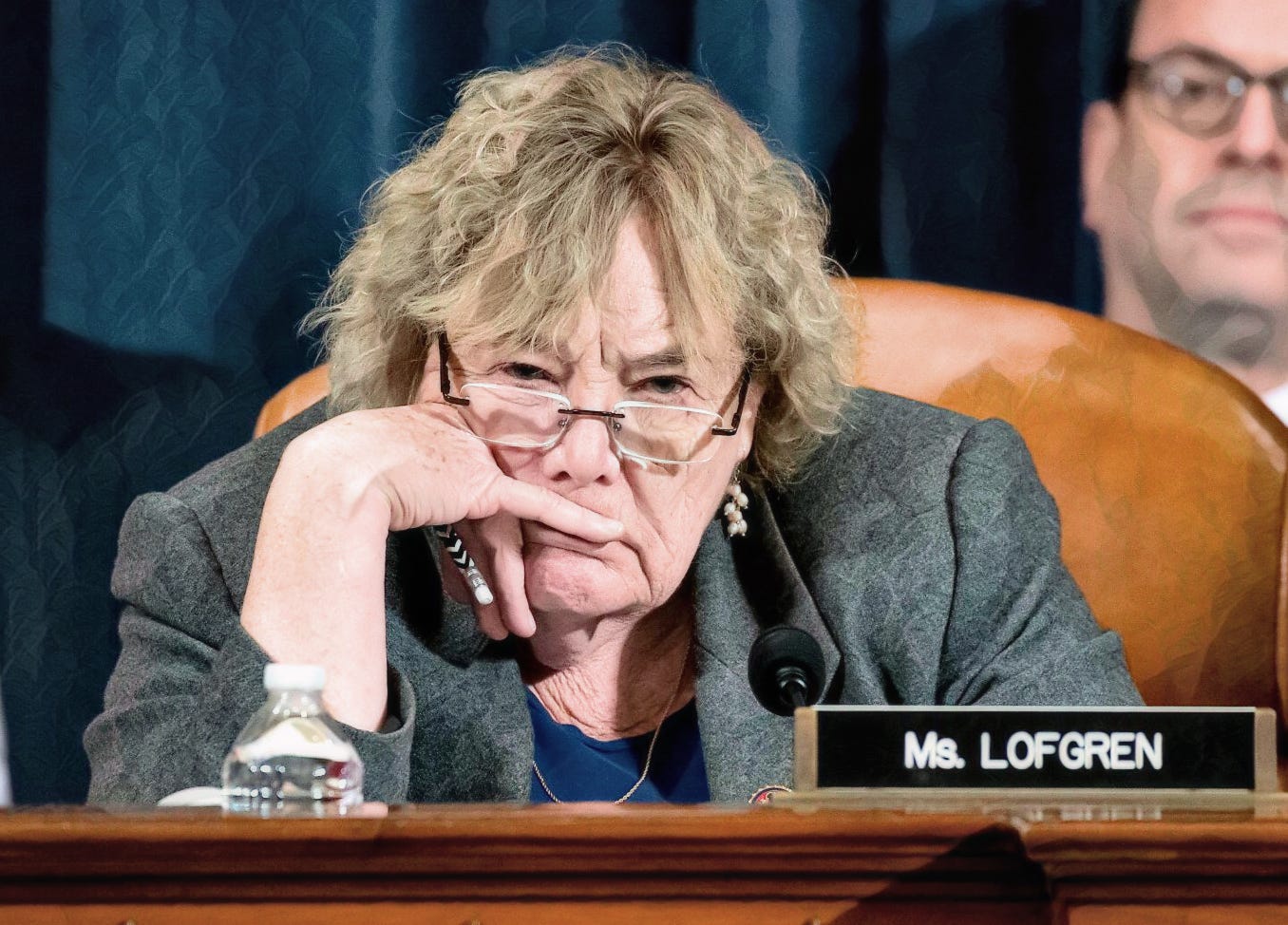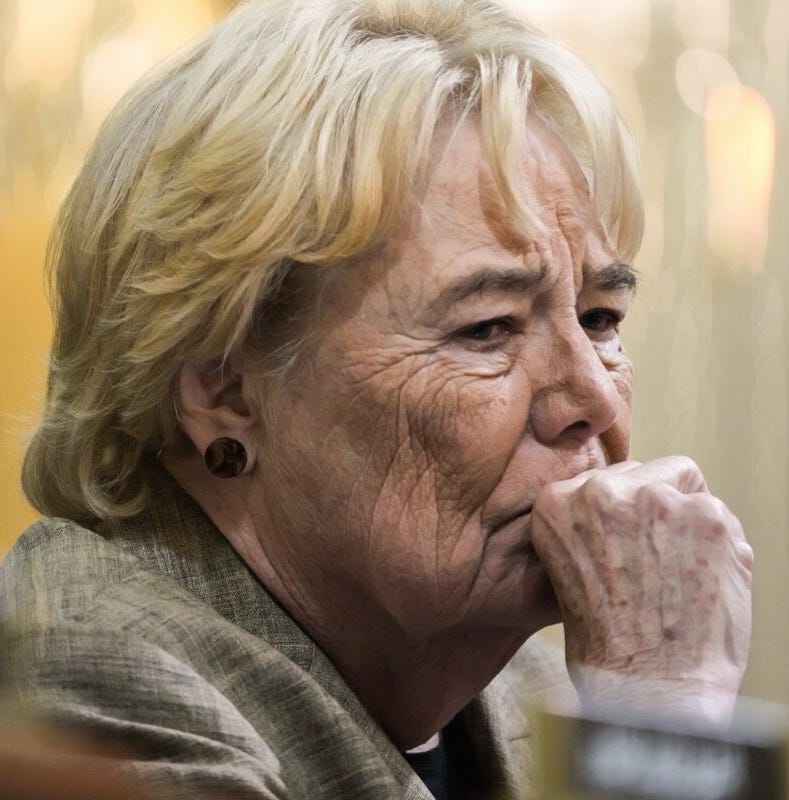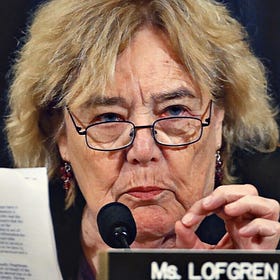Silicon Showdown: Charlene Concepción Nijmeh vs. Zoe Lofgren
Time's Up for Big Tech's Titan? A Critical Look at Age and Change in California's 18th District

By Richard Luthmann
In California's 18th Congressional District, a pivotal race unfolds with national implications. On March 5, 2024, voters will decide not just on a representative but on the direction of its political, social, and technological future.
The contest challenges the tenure of one of Silicon Valley's longest-serving representatives, Zoe Lofgren. It spotlights the more significant issue of aging leadership within the American political landscape.
Charlene Concepción Nijmeh steps into the arena as Lofgren's challenger. Nijmeh’s candidacy questions whether the time has come for a generational shift in a district at the heart of technological innovation and social change.
Zoe Lofgren: A Legacy Under Scrutiny
At 76, Congresswoman Zoe Lofgren has had a political career spanning over four decades, with tenure in Congress since 1996. Her journey from a law student assisting in the impeachment process against President Richard Nixon to a key player in Silicon Valley's political scene underscores a wealth of experience.
However, this extensive political lineage is now under the microscope as constituents and critics weigh the implications of her long-standing affiliation with Big Tech against emerging social and ethical challenges.
Progressives Rally Against CA Rep. Zoe Lofgren: Indigenous Rights Stance Sparks Outrage Among Activists
NOTE: Renowned Investigative Journalist Frank Parlato is conducting a deep-dive on aging incumbent California Bay Area Congresswoman Zoe Lofgren.
While notable for its depth, Lofgren's track record faces scrutiny for what some describe as a coziness with Big Tech entities, potentially at the expense of broader constituent welfare and emerging moral imperatives, such as protecting children from online exploitation and ensuring equitable technological governance.
The Age Debate: A National Concern
This electoral showdown is set against a national conversation about the age and vitality of America's political figures. President Joe Biden, at 81, and former President Donald Trump, who would be 82 by the end of a second non-consecutive term, exemplify the broader discourse on whether the senior politicians of American politics can effectively meet the demands of an increasingly complex and fast-paced world.

The situation mirrors concerns previously raised about other aged politicians, including late U.S. Senator Dianne Feinstein, whose health issues before her passing at 90 sparked debate, and Chuck Grassley, still serving at 90. Historical precedents such as Strom Thurmond and Robert Byrd, who served in the Senate until they were 100 and 92, respectively, further fuel the discussion on the impact of age on political efficacy.
Charlene Concepción Nijmeh: A New Vision for California’s 18th Congressional District
In stark contrast stands Charlene Concepción Nijmeh, whose candidacy symbolizes a new, energetic vision for leadership. Her campaign distinguishes itself with a pledge to reject corporate PAC money, a commitment to not owning stock while in Congress, and a promise to donate her salary to those in need, signaling a sharp departure from the status quo.
Nijmeh's stance on issues from housing affordability and homelessness to the regulation of Big Tech speaks directly to the District's pressing needs and the moral imperatives of our time.
California's 18th Congressional District Election 2024: A Bellwether For the Democratic Party Establishment?
By Richard Luthmann
The stage is set for a pivotal showdown in the 2024 U.S. House elections. California's 18th Congressional District, newly redrawn after the 2020 Census, covers Silicon Valley in the San Francisco Bay Area.
Nijmeh's approach to tackling the dual crises of housing affordability and homelessness, exacerbated by Silicon Valley's economic dynamics, illustrates a pragmatic yet innovative strategy focused on inclusivity and sustainability.
Her advocacy for equitable tech industry employment and a more responsible approach to technological governance underscores a commitment to leveraging Silicon Valley's resources for the broader public good.
A Crucial Choice for CA-18
The race between Lofgren and Nijmeh thus transcends a simple electoral contest, embodying a critical choice for the future of California's 18th District. It poses a question of balance between leveraging Lofgren's extensive experience and networks within the tech industry against the need for fresh perspectives and approaches represented by Nijmeh.

This election, set against the broader debates on political age and allegiance, allows the District's voters to redefine their representation in a way that aligns with our time's evolving challenges and opportunities. The new ideas and energy of Charlene Concepción Nijmeh, aimed at steering the District toward a more inclusive and equitable future, remain appealing to many Californians.
What do you think?





The problem I see it again promotes this equitable argument that Trumps meritocracy. Your promotion of Nijmeh doesn’t pass the smell test but your focus on the age elements make the case on why there needs to be term limits for Congress.